Britney Spears' AI-Generated Acoustic Cover of Hold It Against Me Analyzed
The AI Revolution in Music: Britney Spears' "Hold It Against Me" Gets an Acoustic Makeover
When Artificial Intelligence Meets Pop Music
The music industry is undergoing a quiet revolution, and artificial intelligence is leading the charge. One of the most fascinating developments? AI's ability to completely reimagine existing songs—like transforming Britney Spears' high-energy dance anthem "Hold It Against Me" into a soulful acoustic ballad.
This isn't just a novelty—it's a glimpse into the future of music creation. AI-generated covers are becoming increasingly sophisticated, raising important questions about creativity, copyright, and what it means to be an artist in the digital age.
Why This AI Cover Stands Out
- Genre-Bending Transformation: The AI took a synth-heavy pop track and stripped it down to raw, acoustic elements—something that would normally require a human arranger.
- Emotional Depth: Surprisingly, the AI version captures a melancholic, introspective mood that feels authentic.
- Technical Precision: The arrangement maintains the song’s core melody while adapting it seamlessly to a new style.
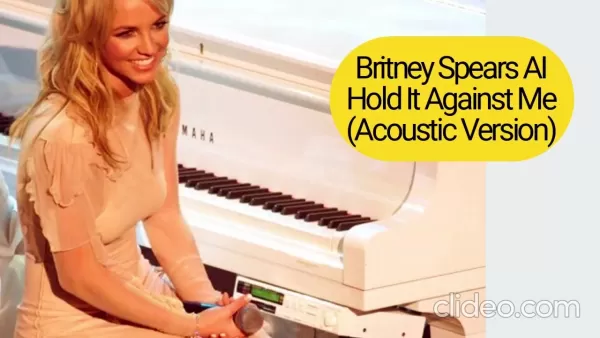
How AI Music Generation Actually Works
The Brains Behind the Operation
AI music tools rely on deep learning models—particularly Recurrent Neural Networks (RNNs) and Generative Adversarial Networks (GANs)—to analyze and recreate musical patterns. Here’s a simplified breakdown:
- Data Training: The AI is fed thousands of songs to learn structures, chord progressions, and stylistic nuances.
- Pattern Recognition: It identifies what makes a Britney Spears song sound like Britney Spears—or what defines an "acoustic" arrangement.
- Generation & Refinement: The AI produces a new version, which can then be fine-tuned by human producers.
The Tech Stack Behind AI Music
Technology Role in Music Generation RNNs (Recurrent Neural Networks) Best for sequential data (like melodies), but struggles with long-term structure. LSTMs (Long Short-Term Memory Networks) Improved version of RNNs—better at maintaining coherence in longer compositions. GANs (Generative Adversarial Networks) Two AIs "compete"—one creates music, the other critiques it, leading to more realistic outputs. Transformers The most advanced—used in tools like OpenAI’s Jukebox, capable of full-song generation.
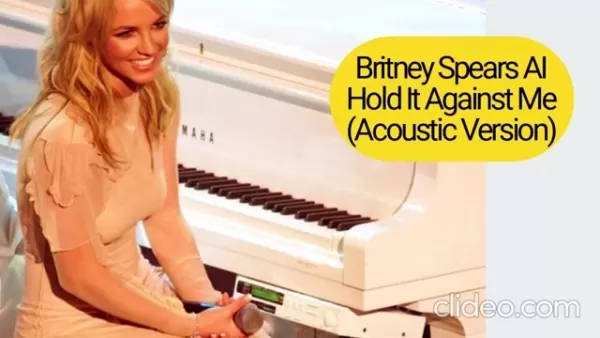
The Bigger Picture: AI’s Role in the Music Industry
The Good, The Bad, and The Ethical
✅ Pros of AI in Music
- Democratization: Anyone can create music, even without formal training.
- Efficiency: Producers can experiment with styles in minutes instead of weeks.
- Innovation: AI can suggest chord progressions or melodies humans might not think of.
❌ Cons & Controversies
- Copyright Gray Areas: Who owns an AI-generated Britney Spears cover—the AI developer, the user, or Britney’s label?
- Authenticity Debate: Can AI music ever have the emotional weight of human-created art?
- Job Displacement: Will AI replace session musicians, arrangers, or even songwriters?
How You Can Experiment With AI Music
Step-by-Step: Making Your Own AI Cover
Pick a Platform
- Amper Music (best for beginners)
- OpenAI’s Jukebox (advanced, but requires coding knowledge)
- AIVA (great for cinematic/orchestral styles)
Feed It a Reference Track
- Upload an MP3 or point the AI to a streaming link.
Customize the Style
- Adjust tempo, key, instrumentation (e.g., "acoustic guitar + piano").
Generate & Tweak
- Most tools spit out multiple versions—pick the best and refine it manually.
Release It (Carefully!)
- Check copyright laws before sharing AI-generated covers publicly.
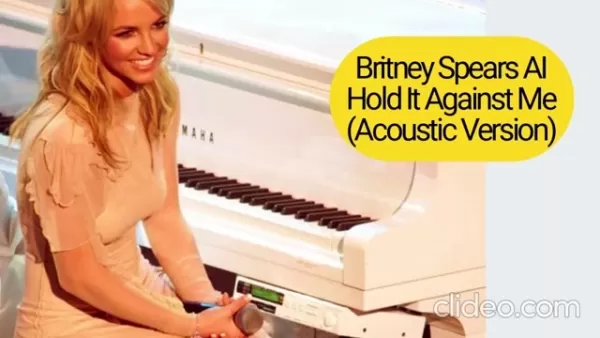
The Future: Where AI Music Is Heading
- AI Collaborators: Musicians might soon co-write with AI in real time.
- Personalized Soundtracks: Imagine Spotify generating unique songs based on your mood.
- Legal Battles: Expect lawsuits as AI blurs the lines between inspiration and infringement.
Final Thought
The Britney Spears AI cover isn’t just a fun experiment—it’s a sign of where music is headed. AI won’t replace artists, but it will change how we create, consume, and think about music. The question isn’t if AI will shape the industry, but how we’ll adapt to it.
What’s your take? Could an AI-generated song ever top the charts? Let us know in the comments!
Related article
 Master Emerald Kaizo Nuzlocke: Ultimate Survival & Strategy Guide
Emerald Kaizo stands as one of the most formidable Pokémon ROM hacks ever conceived. While attempting a Nuzlocke run exponentially increases the challenge, victory remains achievable through meticulous planning and strategic execution. This definitiv
Master Emerald Kaizo Nuzlocke: Ultimate Survival & Strategy Guide
Emerald Kaizo stands as one of the most formidable Pokémon ROM hacks ever conceived. While attempting a Nuzlocke run exponentially increases the challenge, victory remains achievable through meticulous planning and strategic execution. This definitiv
 AI-Powered Cover Letters: Expert Guide for Journal Submissions
In today's competitive academic publishing environment, crafting an effective cover letter can make the crucial difference in your manuscript's acceptance. Discover how AI-powered tools like ChatGPT can streamline this essential task, helping you cre
AI-Powered Cover Letters: Expert Guide for Journal Submissions
In today's competitive academic publishing environment, crafting an effective cover letter can make the crucial difference in your manuscript's acceptance. Discover how AI-powered tools like ChatGPT can streamline this essential task, helping you cre
 US to Sanction Foreign Officials Over Social Media Regulations
US Takes Stand Against Global Digital Content Regulations
The State Department issued a sharp diplomatic rebuke this week targeting European digital governance policies, signaling escalating tensions over control of online platforms. Secretary Marco
Comments (4)
0/200
US to Sanction Foreign Officials Over Social Media Regulations
US Takes Stand Against Global Digital Content Regulations
The State Department issued a sharp diplomatic rebuke this week targeting European digital governance policies, signaling escalating tensions over control of online platforms. Secretary Marco
Comments (4)
0/200
![FredLewis]() FredLewis
FredLewis
 August 13, 2025 at 3:01:00 AM EDT
August 13, 2025 at 3:01:00 AM EDT
Whoa, AI turning Britney's banger into an acoustic vibe is wild! 🤯 Sounds like a campfire jam session, but I'm wondering if it captures her soul or just mimics it. Cool tech, but feels a bit like a robot stealing her sparkle.


 0
0
![JasonJohnson]() JasonJohnson
JasonJohnson
 August 5, 2025 at 10:01:00 PM EDT
August 5, 2025 at 10:01:00 PM EDT
This AI acoustic cover of Britney's song is wild! It’s like hearing a campfire version of a club banger. Kinda makes you wonder if AI will start dropping its own albums soon. 😎


 0
0
![StevenMartin]() StevenMartin
StevenMartin
 July 29, 2025 at 8:25:16 AM EDT
July 29, 2025 at 8:25:16 AM EDT
Whoa, AI turning Britney's pop banger into an acoustic vibe is wild! 🤯 It’s cool but kinda creepy how it nails her voice. Makes you wonder what’s next—AI writing whole albums?


 0
0
![WilliamLewis]() WilliamLewis
WilliamLewis
 July 27, 2025 at 9:20:54 PM EDT
July 27, 2025 at 9:20:54 PM EDT
This AI acoustic cover of Britney's song is wild! It’s like hearing a campfire version of a club banger. Kinda makes me wonder if AI will start dropping its own albums soon. 😎


 0
0
The AI Revolution in Music: Britney Spears' "Hold It Against Me" Gets an Acoustic Makeover
When Artificial Intelligence Meets Pop Music
The music industry is undergoing a quiet revolution, and artificial intelligence is leading the charge. One of the most fascinating developments? AI's ability to completely reimagine existing songs—like transforming Britney Spears' high-energy dance anthem "Hold It Against Me" into a soulful acoustic ballad.
This isn't just a novelty—it's a glimpse into the future of music creation. AI-generated covers are becoming increasingly sophisticated, raising important questions about creativity, copyright, and what it means to be an artist in the digital age.
Why This AI Cover Stands Out
- Genre-Bending Transformation: The AI took a synth-heavy pop track and stripped it down to raw, acoustic elements—something that would normally require a human arranger.
- Emotional Depth: Surprisingly, the AI version captures a melancholic, introspective mood that feels authentic.
- Technical Precision: The arrangement maintains the song’s core melody while adapting it seamlessly to a new style.

How AI Music Generation Actually Works
The Brains Behind the Operation
AI music tools rely on deep learning models—particularly Recurrent Neural Networks (RNNs) and Generative Adversarial Networks (GANs)—to analyze and recreate musical patterns. Here’s a simplified breakdown:
- Data Training: The AI is fed thousands of songs to learn structures, chord progressions, and stylistic nuances.
- Pattern Recognition: It identifies what makes a Britney Spears song sound like Britney Spears—or what defines an "acoustic" arrangement.
- Generation & Refinement: The AI produces a new version, which can then be fine-tuned by human producers.
The Tech Stack Behind AI Music
| Technology | Role in Music Generation |
|---|---|
| RNNs (Recurrent Neural Networks) | Best for sequential data (like melodies), but struggles with long-term structure. |
| LSTMs (Long Short-Term Memory Networks) | Improved version of RNNs—better at maintaining coherence in longer compositions. |
| GANs (Generative Adversarial Networks) | Two AIs "compete"—one creates music, the other critiques it, leading to more realistic outputs. |
| Transformers | The most advanced—used in tools like OpenAI’s Jukebox, capable of full-song generation. |

The Bigger Picture: AI’s Role in the Music Industry
The Good, The Bad, and The Ethical
✅ Pros of AI in Music
- Democratization: Anyone can create music, even without formal training.
- Efficiency: Producers can experiment with styles in minutes instead of weeks.
- Innovation: AI can suggest chord progressions or melodies humans might not think of.
❌ Cons & Controversies
- Copyright Gray Areas: Who owns an AI-generated Britney Spears cover—the AI developer, the user, or Britney’s label?
- Authenticity Debate: Can AI music ever have the emotional weight of human-created art?
- Job Displacement: Will AI replace session musicians, arrangers, or even songwriters?
How You Can Experiment With AI Music
Step-by-Step: Making Your Own AI Cover
Pick a Platform
- Amper Music (best for beginners)
- OpenAI’s Jukebox (advanced, but requires coding knowledge)
- AIVA (great for cinematic/orchestral styles)
Feed It a Reference Track
- Upload an MP3 or point the AI to a streaming link.
Customize the Style
- Adjust tempo, key, instrumentation (e.g., "acoustic guitar + piano").
Generate & Tweak
- Most tools spit out multiple versions—pick the best and refine it manually.
Release It (Carefully!)
- Check copyright laws before sharing AI-generated covers publicly.

The Future: Where AI Music Is Heading
- AI Collaborators: Musicians might soon co-write with AI in real time.
- Personalized Soundtracks: Imagine Spotify generating unique songs based on your mood.
- Legal Battles: Expect lawsuits as AI blurs the lines between inspiration and infringement.
Final Thought
The Britney Spears AI cover isn’t just a fun experiment—it’s a sign of where music is headed. AI won’t replace artists, but it will change how we create, consume, and think about music. The question isn’t if AI will shape the industry, but how we’ll adapt to it.
What’s your take? Could an AI-generated song ever top the charts? Let us know in the comments!
 Master Emerald Kaizo Nuzlocke: Ultimate Survival & Strategy Guide
Emerald Kaizo stands as one of the most formidable Pokémon ROM hacks ever conceived. While attempting a Nuzlocke run exponentially increases the challenge, victory remains achievable through meticulous planning and strategic execution. This definitiv
Master Emerald Kaizo Nuzlocke: Ultimate Survival & Strategy Guide
Emerald Kaizo stands as one of the most formidable Pokémon ROM hacks ever conceived. While attempting a Nuzlocke run exponentially increases the challenge, victory remains achievable through meticulous planning and strategic execution. This definitiv
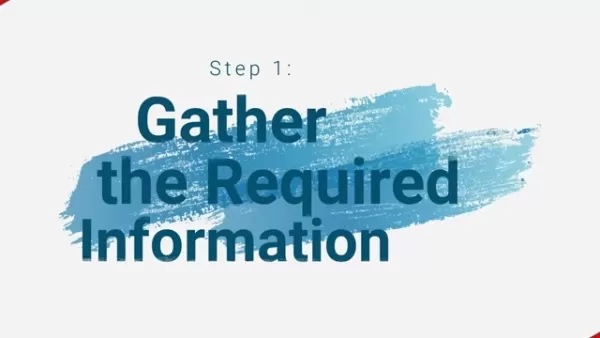 AI-Powered Cover Letters: Expert Guide for Journal Submissions
In today's competitive academic publishing environment, crafting an effective cover letter can make the crucial difference in your manuscript's acceptance. Discover how AI-powered tools like ChatGPT can streamline this essential task, helping you cre
AI-Powered Cover Letters: Expert Guide for Journal Submissions
In today's competitive academic publishing environment, crafting an effective cover letter can make the crucial difference in your manuscript's acceptance. Discover how AI-powered tools like ChatGPT can streamline this essential task, helping you cre
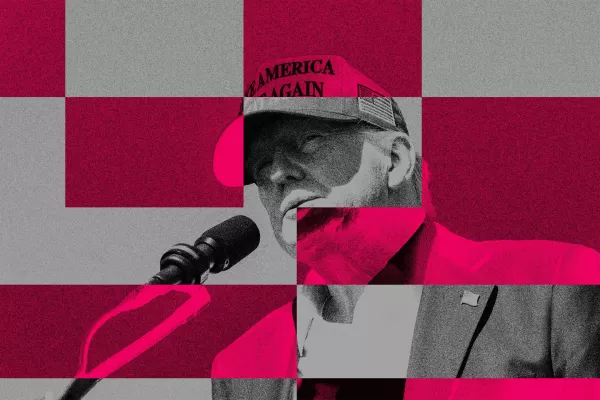 US to Sanction Foreign Officials Over Social Media Regulations
US Takes Stand Against Global Digital Content Regulations
The State Department issued a sharp diplomatic rebuke this week targeting European digital governance policies, signaling escalating tensions over control of online platforms. Secretary Marco
US to Sanction Foreign Officials Over Social Media Regulations
US Takes Stand Against Global Digital Content Regulations
The State Department issued a sharp diplomatic rebuke this week targeting European digital governance policies, signaling escalating tensions over control of online platforms. Secretary Marco
 August 13, 2025 at 3:01:00 AM EDT
August 13, 2025 at 3:01:00 AM EDT
Whoa, AI turning Britney's banger into an acoustic vibe is wild! 🤯 Sounds like a campfire jam session, but I'm wondering if it captures her soul or just mimics it. Cool tech, but feels a bit like a robot stealing her sparkle.


 0
0
 August 5, 2025 at 10:01:00 PM EDT
August 5, 2025 at 10:01:00 PM EDT
This AI acoustic cover of Britney's song is wild! It’s like hearing a campfire version of a club banger. Kinda makes you wonder if AI will start dropping its own albums soon. 😎


 0
0
 July 29, 2025 at 8:25:16 AM EDT
July 29, 2025 at 8:25:16 AM EDT
Whoa, AI turning Britney's pop banger into an acoustic vibe is wild! 🤯 It’s cool but kinda creepy how it nails her voice. Makes you wonder what’s next—AI writing whole albums?


 0
0
 July 27, 2025 at 9:20:54 PM EDT
July 27, 2025 at 9:20:54 PM EDT
This AI acoustic cover of Britney's song is wild! It’s like hearing a campfire version of a club banger. Kinda makes me wonder if AI will start dropping its own albums soon. 😎


 0
0





























